Prepared by:
HALBORN
Last Updated 04/26/2024
Date of Engagement: April 12th, 2022 - May 31st, 2022
Summary
0% of all REPORTED Findings have been addressed
All findings
13
Critical
4
High
2
Medium
6
Low
1
Informational
0
Table of Contents
- 1. Introduction
- 2. Audit summary
- 3. Test approach & methodology
- 4. Scope
- 5. Risk methodology
- 6. Scope
- 7. Assessment summary & findings overview
- 8. Findings & Tech Details
- 8.1 Leaked repo, write:packages github token
- 8.2 Hardcoded mnemonic phrases stored on disk
- 8.3 Hardcoded private keys stored on disk
- 8.4 Unencrypted mnemonic phrase in-memory (demonic)
- 8.5 Pin mechanism bypass
- 8.6 World writable translations google doc
- 8.7 Context isolation disabled
- 8.8 Node integration enabled
- 8.9 Use of packages with known vulnerabilities
- 8.10 Lack of resources and rate limiting
- 8.11 Remote module enabled
- 8.12 Application error leaks information about technology used
- 8.13 Seed phrase not validated after wallet creation
1. INTRODUCTION
Anatha engaged Halborn to conduct a security assessment on their Desktop wallet, beginning on 2022-04-12 and ending on 2022-05-31. The security assessment was scoped to Anatha Desktop Wallet. To begin the test, the Client’s team provided the code source of the Desktop Wallet to Halborn to conduct security testing using tools to scan, detect, validate possible vulnerabilities found in the wallet and report the findings at the end of the engagement.
2. AUDIT SUMMARY
The team at Halborn was provided a timeline for the engagement and assigned two full-time security engineers to audit the security of the smart contract. The security engineers are blockchain and smart-contract security experts with advanced penetration testing, smart-contract hacking, and deep knowledge of multiple blockchain protocols.
The goals of our security audits are to improve the quality of systems we review and aim for sufficient remediation to help protect users.
In summary, Halborn identified many security risks that need to be addressed by the Anatha Team.
3. TEST APPROACH & METHODOLOGY
Halborn performed a combination of manual and automated security testing to balance efficiency, timeliness, practicality, and accuracy regarding the scope of the pentest. While manual testing is recommended to uncover flaws in logic, process and implementation; automated testing techniques assist enhance coverage of the infrastructure and can quickly identify flaws in it.
The following phases and associated tools were used throughout the term of the audit:
Storing private keys, mnemonic, seed, and assets securely
Exposure of any critical information during user interactions with the blockchain and external libraries
Any attack that impacts funds, such as draining or manipulating of funds
Application Logic Flaws
Areas where insufficient validation allows for hostile input
Exploitation of the webview to gain control of the wallet
Application of cryptography to protect secrets
Brute Force Attempts
Input Handling
Fuzzing of all input parameters
Test for Injection (XSS/JSON/HTML)
Web extension misconfiguration
Technology stack-specific vulnerabilities and Code Audit
Known vulnerabilities in 3rd party / OSS dependencies.
4. SCOPE
The security assessment was scoped to:
github/Anatha Wallet
Release Version v2.0.0-12Some tests were performed regarding the endpoints on (https://wallet-backend.mainnet.anatha.net/) with which the Wallet communicates
5. RISK METHODOLOGY
- 5 - Almost certain an incident will occur.
- 4 - High probability of an incident occurring.
- 3 - Potential of a security incident in the long term.
- 2 - Low probability of an incident occurring.
- 1 - Very unlikely issue will cause an incident.
- 5 - May cause devastating and unrecoverable impact or loss.
- 4 - May cause a significant level of impact or loss.
- 3 - May cause a partial impact or loss to many.
- 2 - May cause temporary impact or loss.
- 1 - May cause minimal or un-noticeable impact.
- 10 - CRITICAL
- 9 - 8 - HIGH
- 7 - 6 - MEDIUM
- 5 - 4 - LOW
- 3 - 1 - VERY LOW AND INFORMATIONAL
6. SCOPE
7. Assessment Summary & Findings Overview
Critical
4
High
2
Medium
6
Low
1
Informational
0
Impact x Likelihood
HAL-05
HAL-01
HAL-02
HAL-03
HAL-04
HAL-07
HAL-08
HAL-09
HAL-06
HAL-11
HAL-12
HAL-10
HAL-13
| Security analysis | Risk level | Remediation Date |
|---|---|---|
| LEAKED REPO, WRITE:PACKAGES GITHUB TOKEN | Critical | - |
| HARDCODED MNEMONIC PHRASES STORED ON DISK | Critical | - |
| HARDCODED PRIVATE KEYS STORED ON DISK | Critical | - |
| UNENCRYPTED MNEMONIC PHRASE IN-MEMORY (DEMONIC) | Critical | - |
| PIN MECHANISM BYPASS | High | - |
| WORLD WRITABLE TRANSLATIONS GOOGLE DOC | High | - |
| CONTEXT ISOLATION DISABLED | Medium | - |
| NODE INTEGRATION ENABLED | Medium | - |
| USE OF PACKAGES WITH KNOWN VULNERABILITIES | Medium | - |
| LACK OF RESOURCES AND RATE LIMITING | Medium | - |
| REMOTE MODULE ENABLED | Medium | - |
| APPLICATION ERROR LEAKS INFORMATION ABOUT TECHNOLOGY USED | Medium | - |
| SEED PHRASE NOT VALIDATED AFTER WALLET CREATION | Low | - |
8. Findings & Tech Details
8.1 LEAKED REPO, WRITE:PACKAGES GITHUB TOKEN
//
Description
During the assessment, we have identified that the Anatha Desktop Wallet leaks a GitHub key with repo and write:packages permissions. The Token is leaked in the [Installation Folder]/resources/app.asar file. Any attacker who installs the Anatha Desktop Wallet can retrieve this Token and use it to push (backdoor) code to private Anatha GitHub repositories. They can also use to push packages to the GitHub package repo under the Anatha organization.
Code Location
These are the locations in the codebase where the GitHub Token exists, and which must be removed before deployment:
platform/wallet-desktop/electron-builder.env
APPLE_ID = "some@mail.com"
APPLE_ID_PASSWORD = "cbgs-jnze-vgpn-cgda"
GH_TOKEN = "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"
platform/wallet-desktop/src/renderer/electron-shared/Environment.ts
static readonly UPDATER_PROVIDER: any = {
provider: 'github',
repo: 'wallet-release-test',
owner: 'anathatech',
token: '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'
};
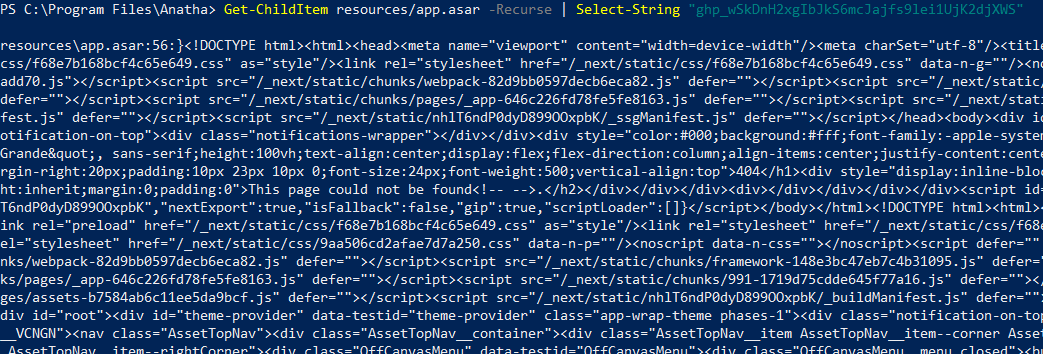
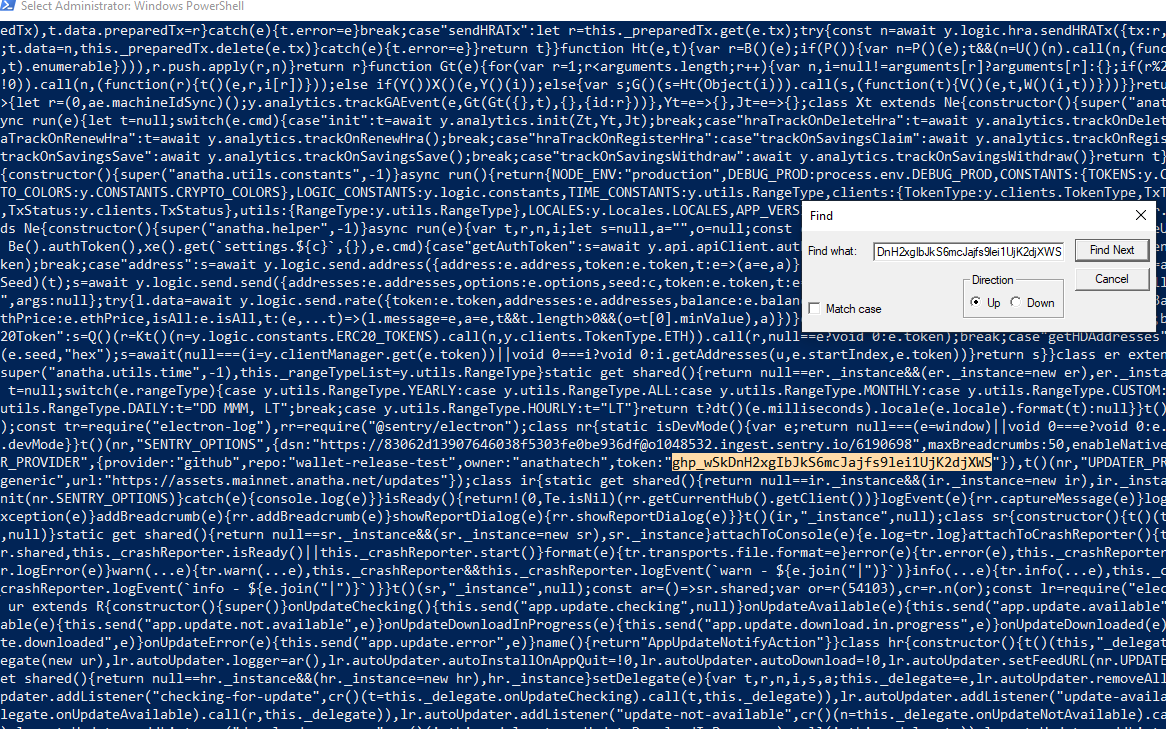
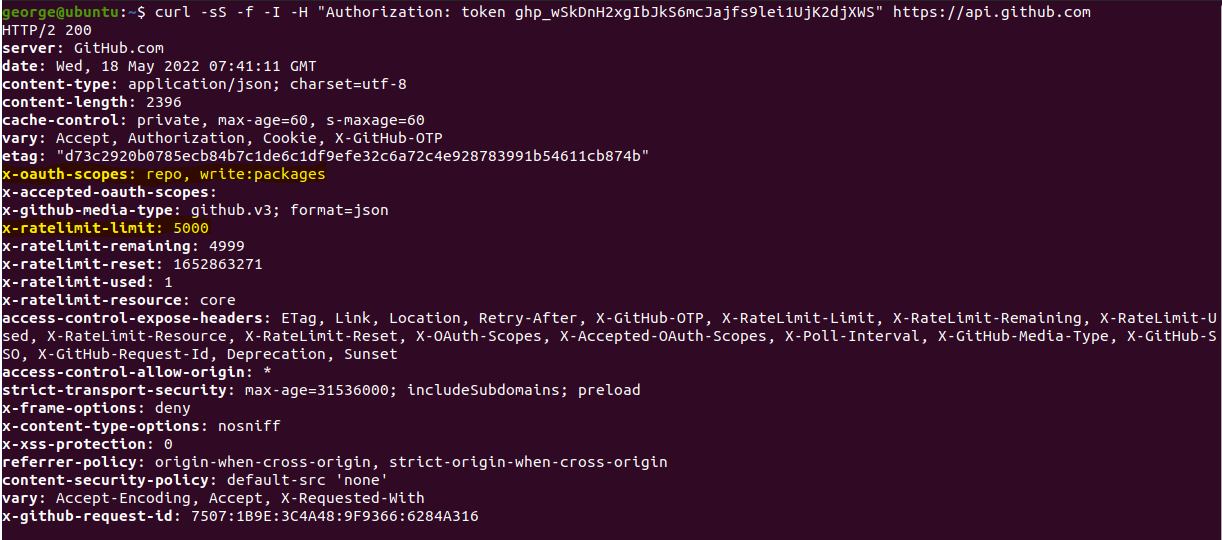
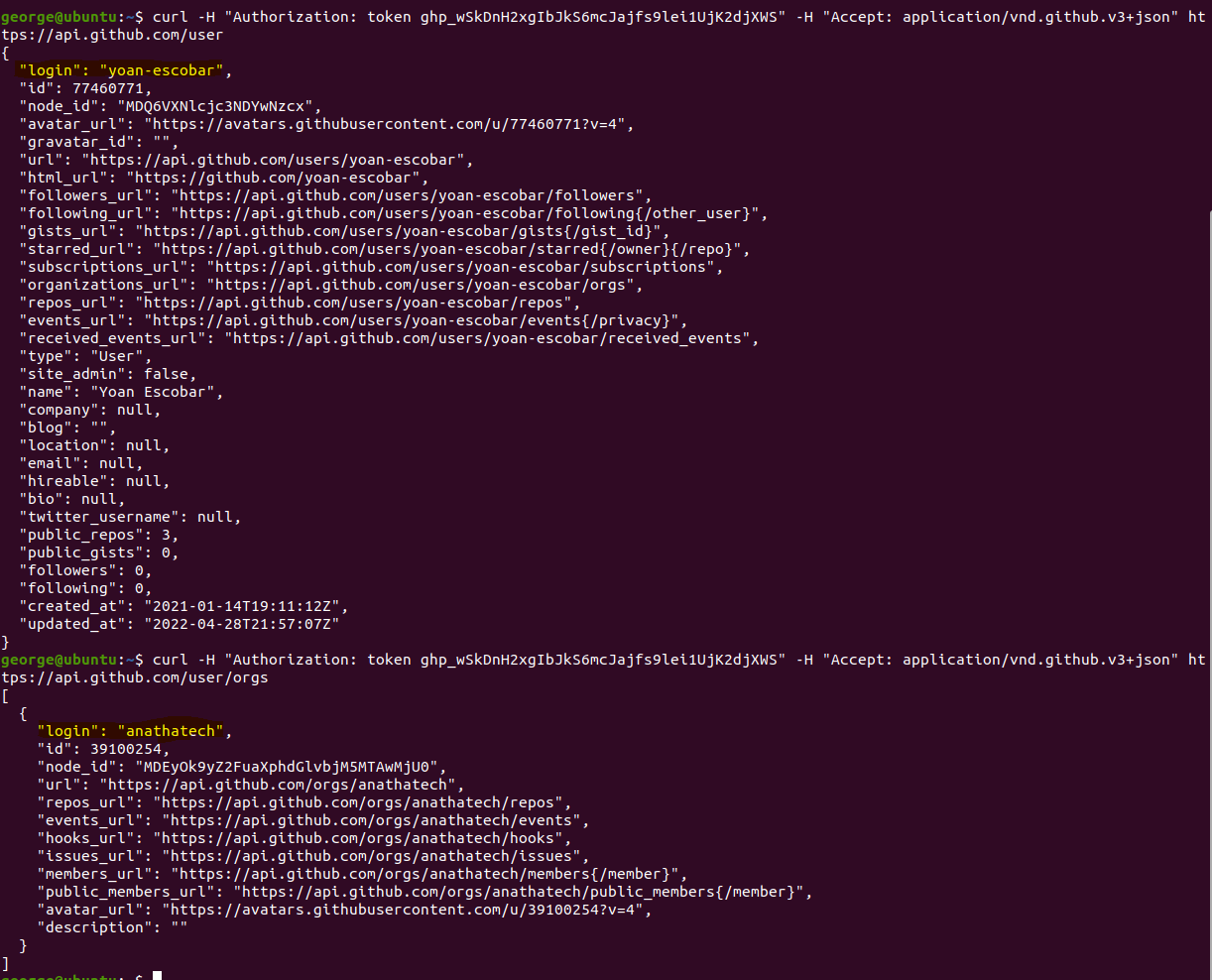


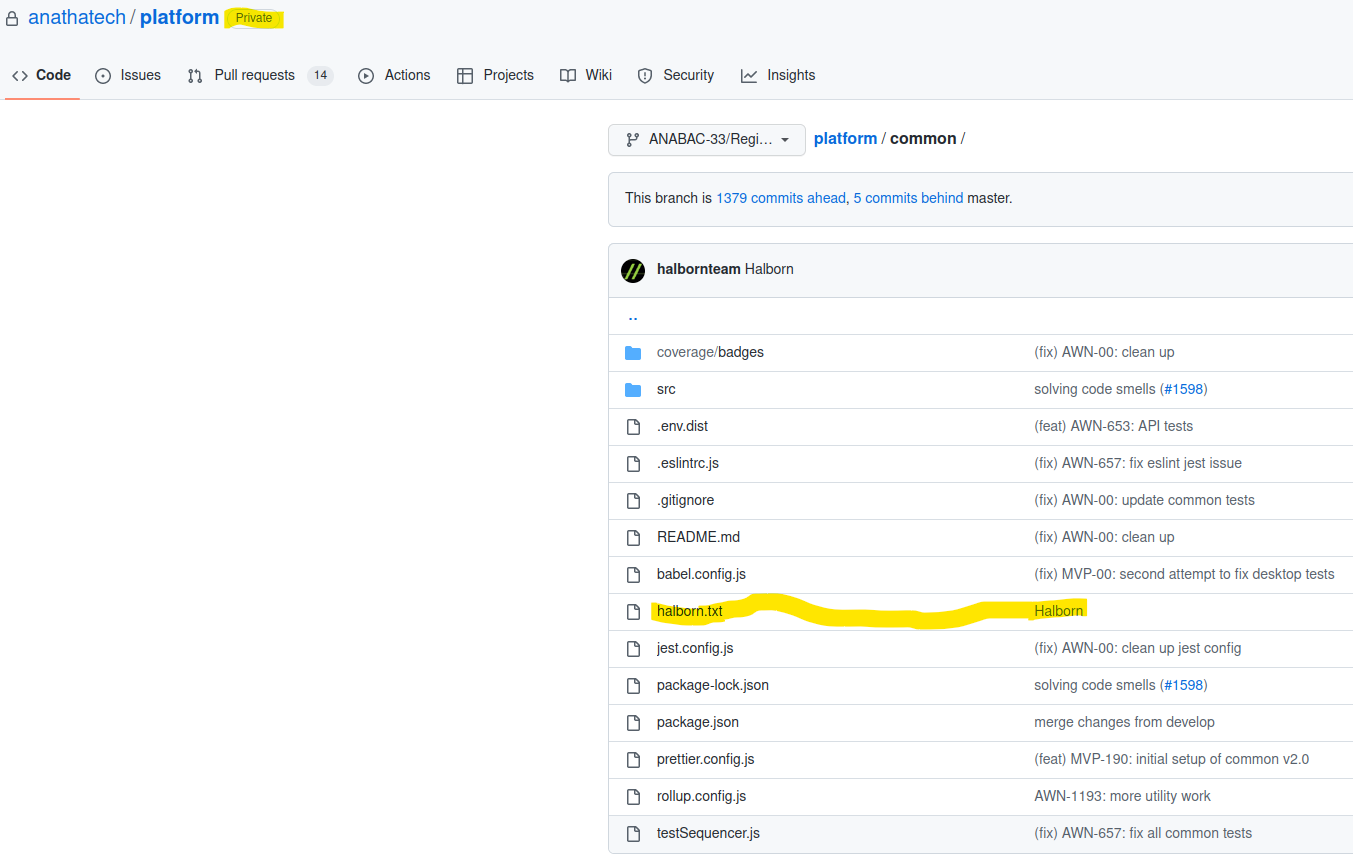
Score
Likelihood: 5
8.2 HARDCODED MNEMONIC PHRASES STORED ON DISK
//
Description
During the assessment, we have identified that the Anatha Desktop Wallet leaks Mnemonic Phrases for wallets that belong to the Anatha Organization. The Mnemonic Phrases are leaked in the [Installation Folder]/resources/app.asar file. Any attacker who installs the Anatha Desktop Wallet can retrieve these Mnemonics and use them to access the wallet to transfer tokens out of it into their wallets. There are three such leaked Mnemonic Phrases, possibly used by Anatha for testing purposes, or to distribute tokens/rewards to their clients' wallets.
Code Location
These are the locations in the codebase where the Mnemonic Phrases exist, and which must be removed before deployment:
platform/common/src/clients/anatha/fixtures/keys.ts
const m1 = [
'fragile',
'duck',
'*****',
'*****',
'*****',
'*****',
'*****',
'*****',
'*****',
'*****',
'*****',
'*****',
'*****',
'*****',
'*****',
'*****',
'*****',
'*****',
'*****',
'*****',
'*****',
'*****',
'fun',
'account',
].join(' ');
const m2 = [
'puppy',
'coil',
'*****',
'*****',
'*****',
'*****',
'*****',
'*****',
'*****',
'*****',
'stomach',
'rent'
].join(' ');
platform/common/src/clients/anatha/tests/keypair.test.ts
const mnemonic = [
'fragile',
'duck',
'*****',
'*****',
'*****',
'*****',
'*****',
'*****',
'*****',
'*****',
'*****',
'*****',
'*****',
'*****',
'*****',
'*****',
'*****',
'*****',
'*****',
'*****',
'*****',
'*****',
'fun',
'account',
].join(' ');
platform/common/src/clients/bch/tests/keypair.test.js
const mnemonic = [
'fragile',
'duck',
'*****',
'*****',
'*****',
'*****',
'*****',
'*****',
'*****',
'*****',
'*****',
'*****',
'*****',
'*****',
'*****',
'*****',
'*****',
'*****',
'*****',
'*****',
'*****',
'*****',
'fun',
'account',
].join(' ');
platform/common/src/clients/bnb/tests/keypair.test.js
const mnemonic = [
'fragile',
'duck',
'*****',
'*****',
'*****',
'*****',
'*****',
'*****',
'*****',
'*****',
'*****',
'*****',
'*****',
'*****',
'*****',
'*****',
'*****',
'*****',
'*****',
'*****',
'*****',
'*****',
'fun',
'account',
].join(' ');
platform/common/src/clients/btc/tests/keypair.test.js
const mnemonic = [
'fragile',
'duck',
'*****',
'*****',
'*****',
'*****',
'*****',
'*****',
'*****',
'*****',
'*****',
'*****',
'*****',
'*****',
'*****',
'*****',
'*****',
'*****',
'*****',
'*****',
'*****',
'*****',
'fun',
'account',
].join(' ');
platform/common/src/clients/dash/tests/keypair.test.js
const mnemonic = [
'fragile',
'duck',
'*****',
'*****',
'*****',
'*****',
'*****',
'*****',
'*****',
'*****',
'*****',
'*****',
'*****',
'*****',
'*****',
'*****',
'*****',
'*****',
'*****',
'*****',
'*****',
'*****',
'fun',
'account',
].join(' ');
platform/common/src/clients/xrp/tests/keypair.test.js
const mnemonic1 = [
'fragile',
'duck',
'*****',
'*****',
'*****',
'*****',
'*****',
'*****',
'*****',
'*****',
'*****',
'*****',
'*****',
'*****',
'*****',
'*****',
'*****',
'*****',
'*****',
'*****',
'*****',
'*****',
'fun',
'account',
].join(' ');
const mnemonic2 = [
'armed',
'bundle',
'*****',
'*****',
'*****',
'*****',
'*****',
'*****',
'*****',
'*****',
'*****',
'*****',
'*****',
'*****',
'*****',
'*****',
'*****',
'*****',
'*****',
'*****',
'*****',
'*****',
'pumpkin',
'athlete',
].join(' ');
platform/common/src/clients/cosmos/tests/keypair.test.js
const mnemonic2 = [
'armed',
'bundle',
'*****',
'*****',
'*****',
'*****',
'*****',
'*****',
'*****',
'*****',
'*****',
'*****',
'*****',
'*****',
'*****',
'*****',
'*****',
'*****',
'*****',
'*****',
'*****',
'*****',
'pumpkin',
'athlete',
].join(' ');
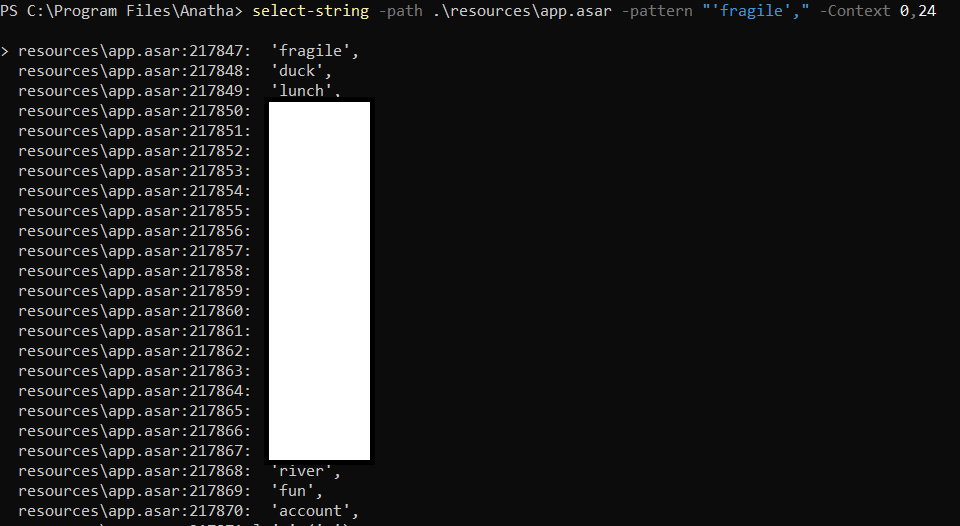
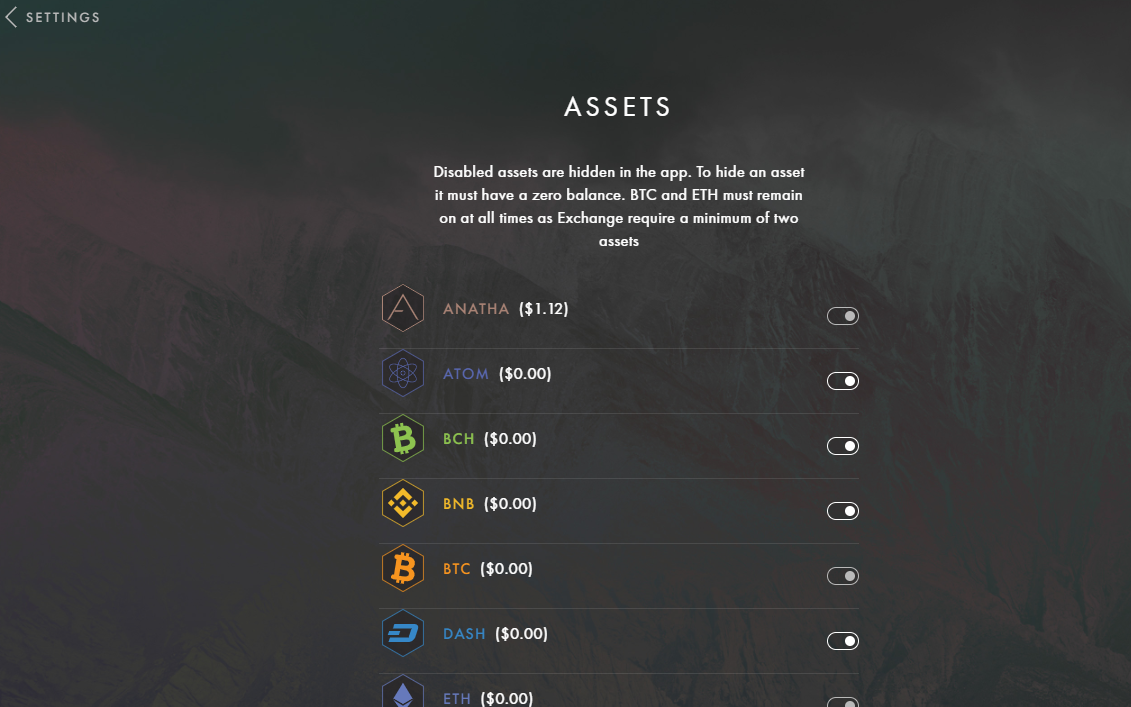
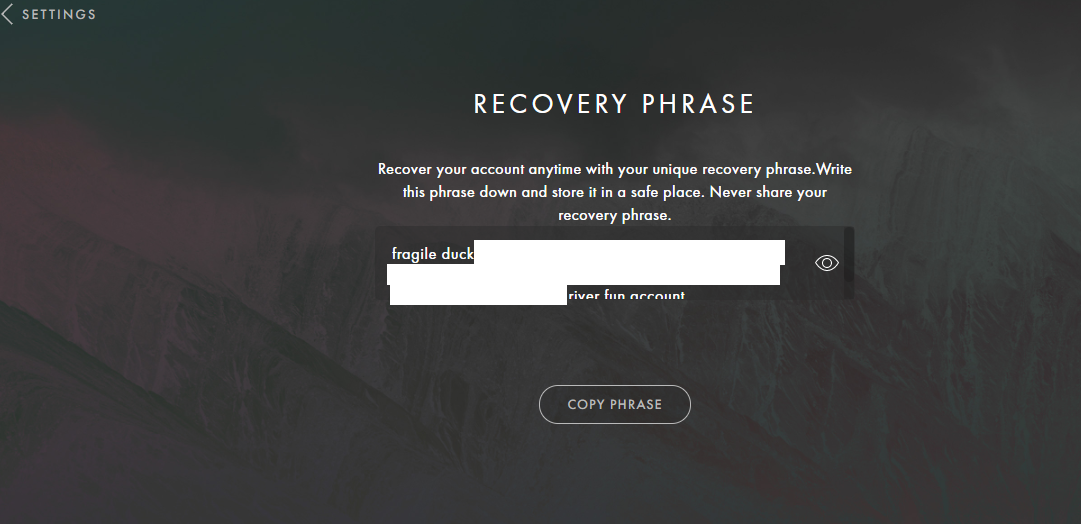

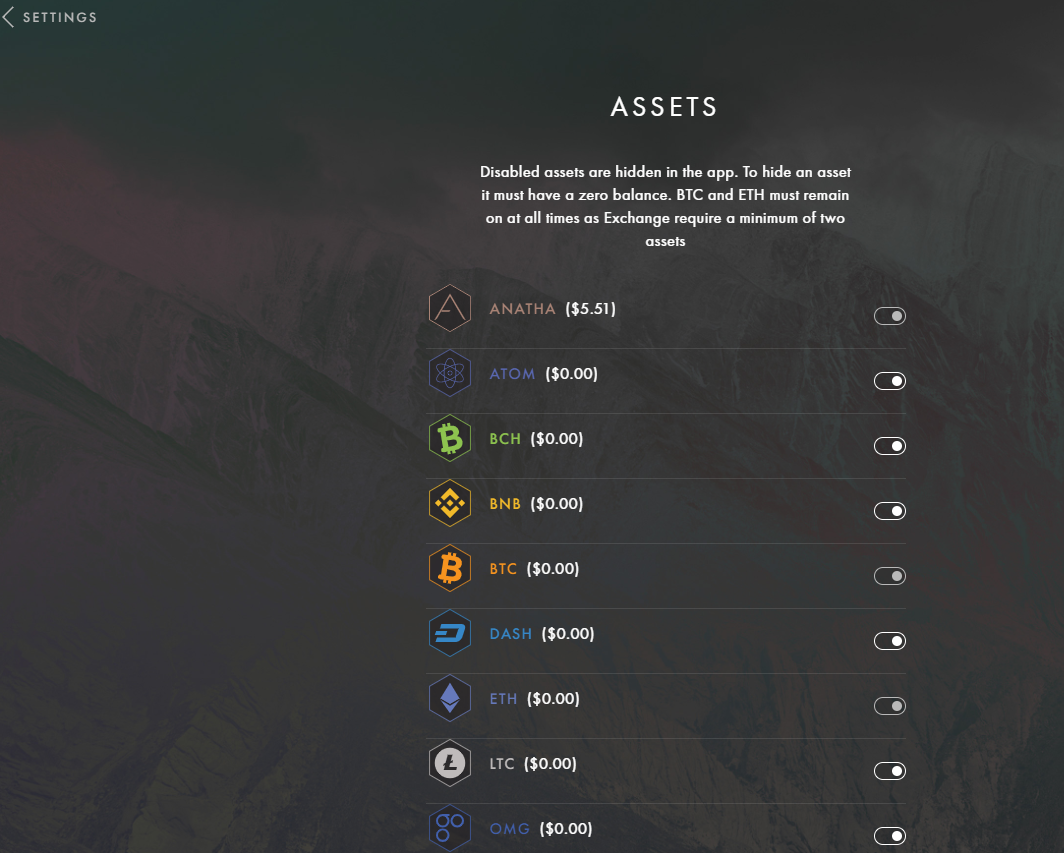
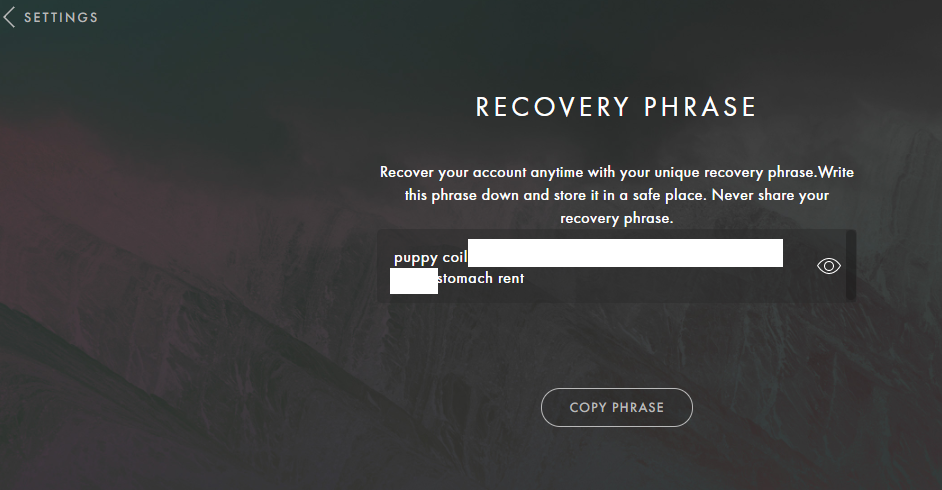
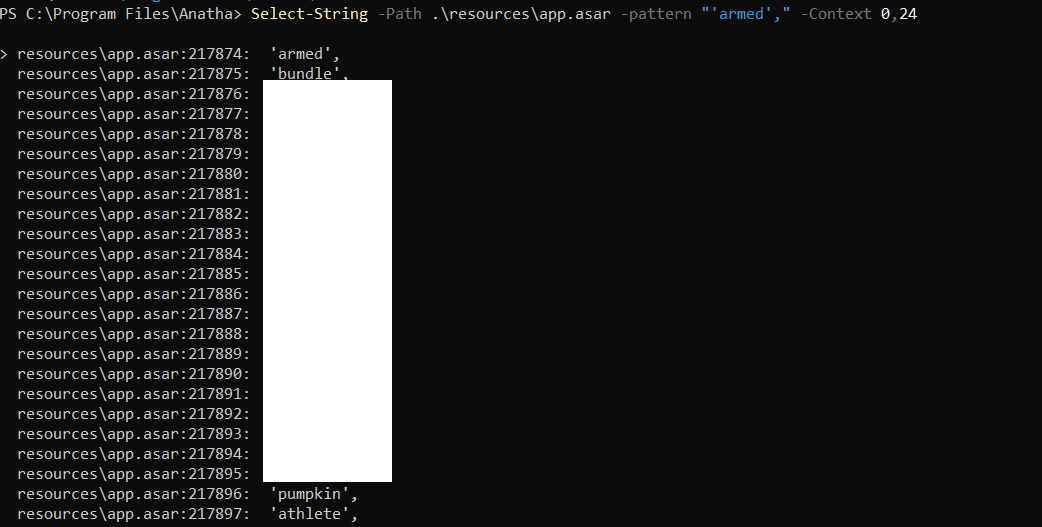
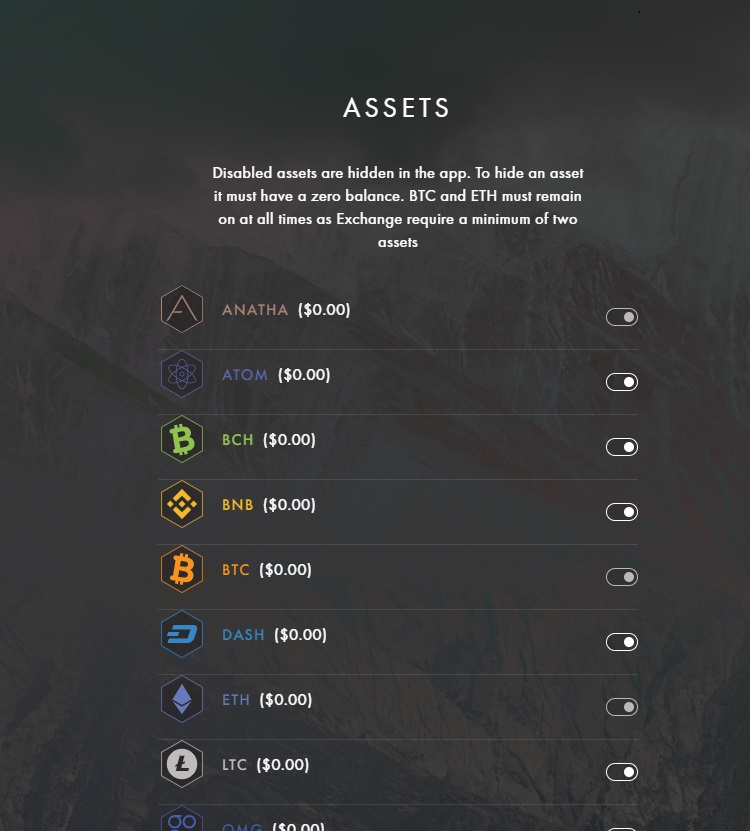
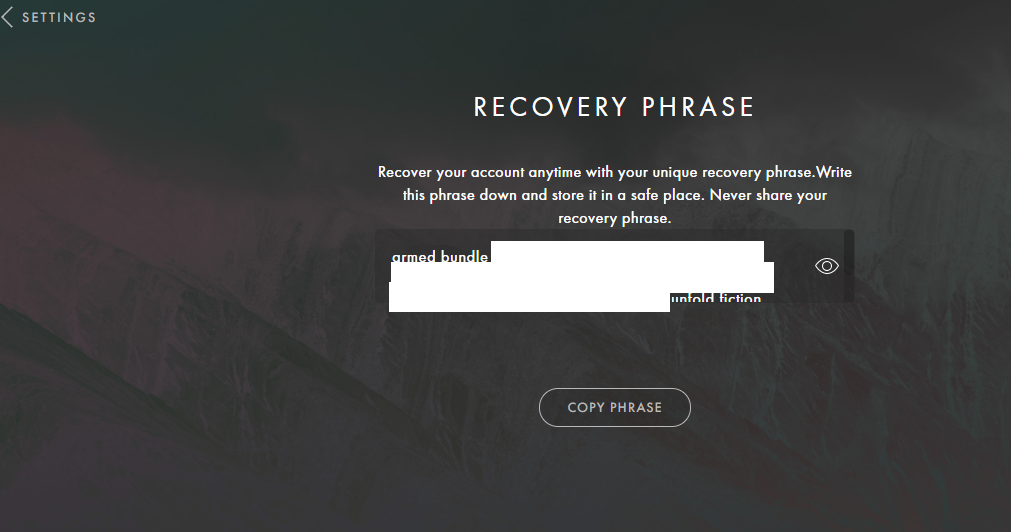
Score
Likelihood: 5
8.3 HARDCODED PRIVATE KEYS STORED ON DISK
//
Description
During the assessment, we have identified that the Anatha Desktop Wallet leaks private keys for wallets that belong to the Anatha Organization. The private keys in the [Installation Folder]/resources/app.asar file. Any attacker who installs the Anatha Desktop Wallet can retrieve the keys and use them to perform transaction on the respective wallets. There are five such leaked private keys.
Code Location
These are the locations in the codebase where the Private Keys exist, and which must be removed before deployment:
platform/common/src/clients/anatha/fixtures/keys.ts
const addr1 = 'anatha1rugv0xeflk2zrj46dnwl89nx92k8z7jm66wmy9';
const addr2 = 'anatha1s0jfgrwsh0ccpw3u04h4c3u2th7xesrptlpy79';
const priv1 = '453268f9acf09be***************607b4ffbd4b8483c9674e';
const priv2 = '6b8a64f5b2c730d***************5ac10c39c10db58b5b7c0';
platform/common/src/clients/web3/fixtures/keys.ts
const priv1 =
'7fb2eac5245d140e0f8d1***************fa0a256dfcdd60dad997fd353b5f';
const priv2 =
'00e0f8adb0a022de08ef3***************07b7898c9f02b95ccc6ffdbfe9fc';
const priv3 =
'4b64874042478e82b3db8***************3326e6b371285d5e6fb3e3ca94b5';


Score
Likelihood: 5
8.4 UNENCRYPTED MNEMONIC PHRASE IN-MEMORY (DEMONIC)
//
Description
The Mnemonic Phrase in the wallet is not encrypted in memory. As a result, an attacker who has compromised a user’s machine can exfiltrate and steal their Mnemonic Phrase.
The Mnemonic Phrase is leaked into memory after the creation of a wallet, the unlocking of the wallet (using password or seed phrase) and the import of the wallet using the seed phrase
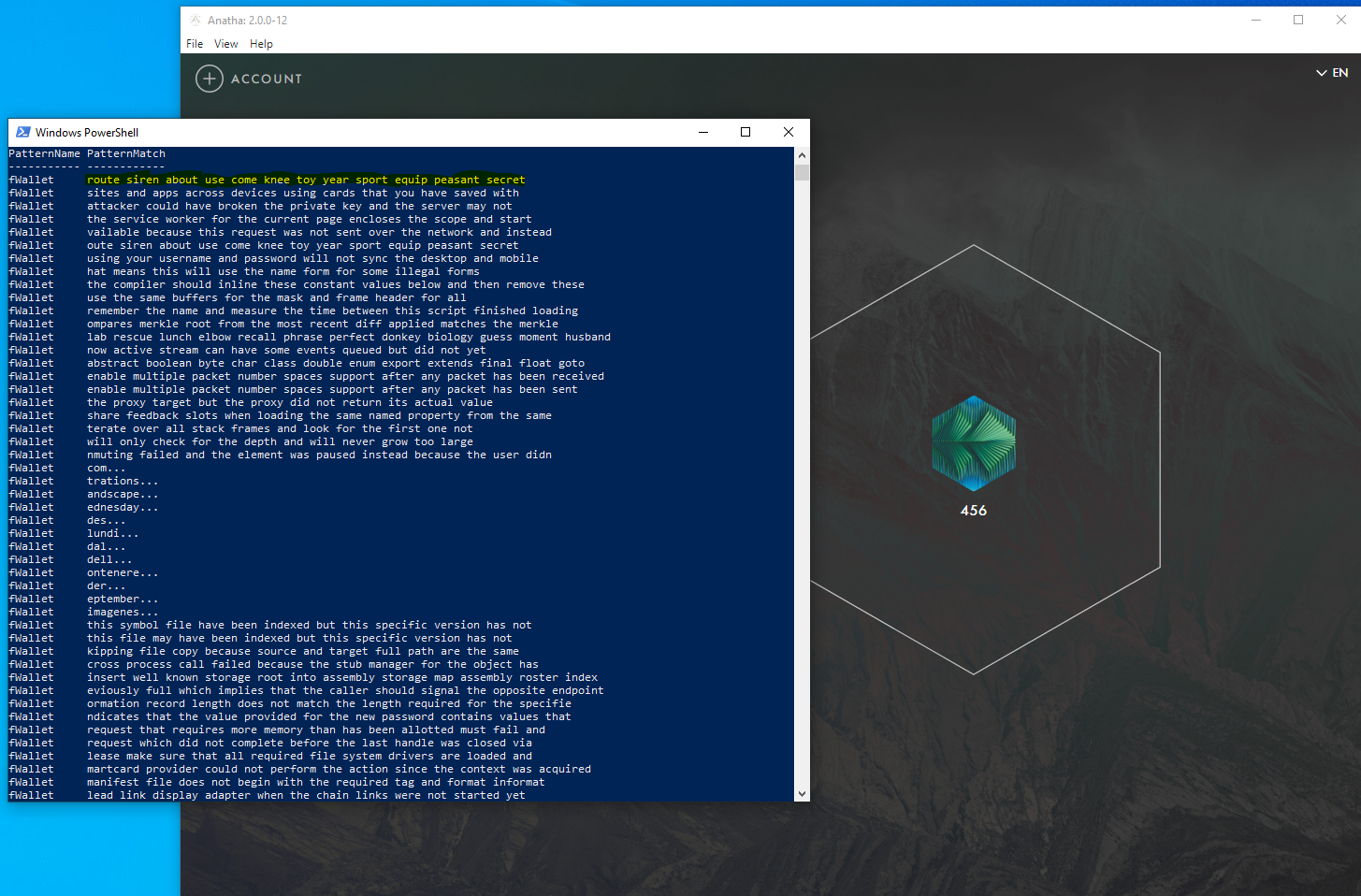
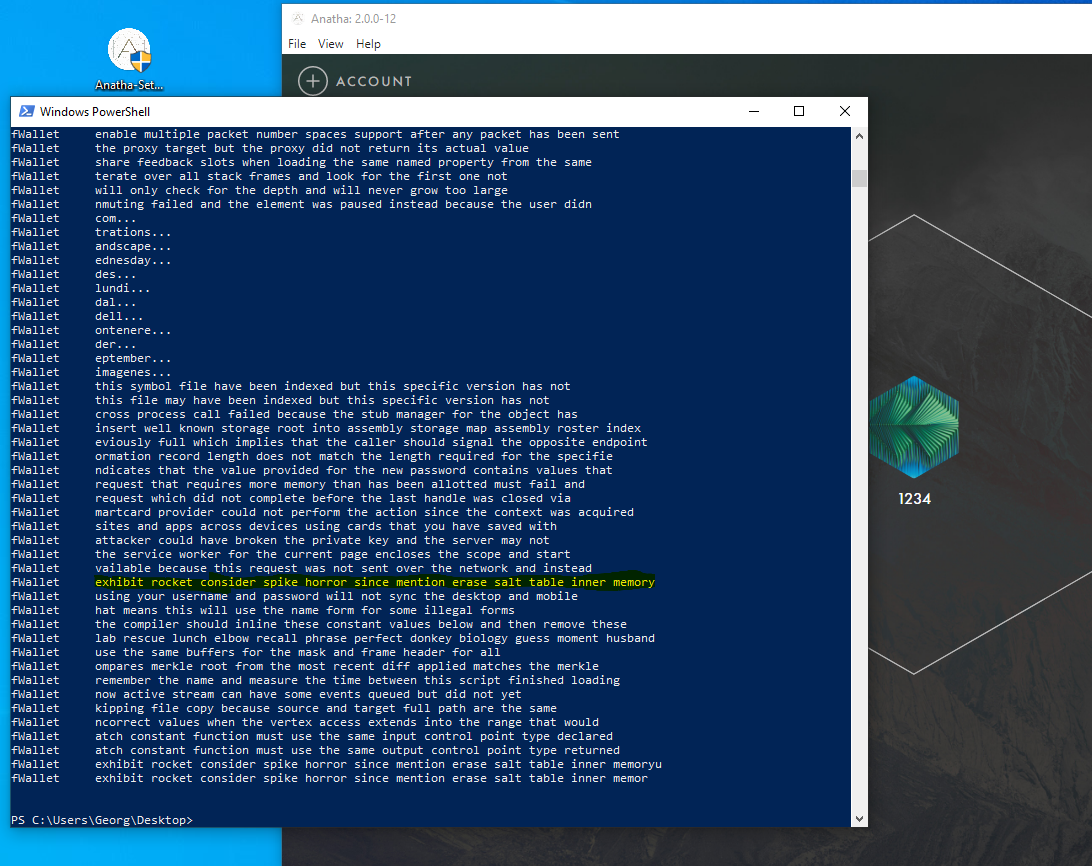
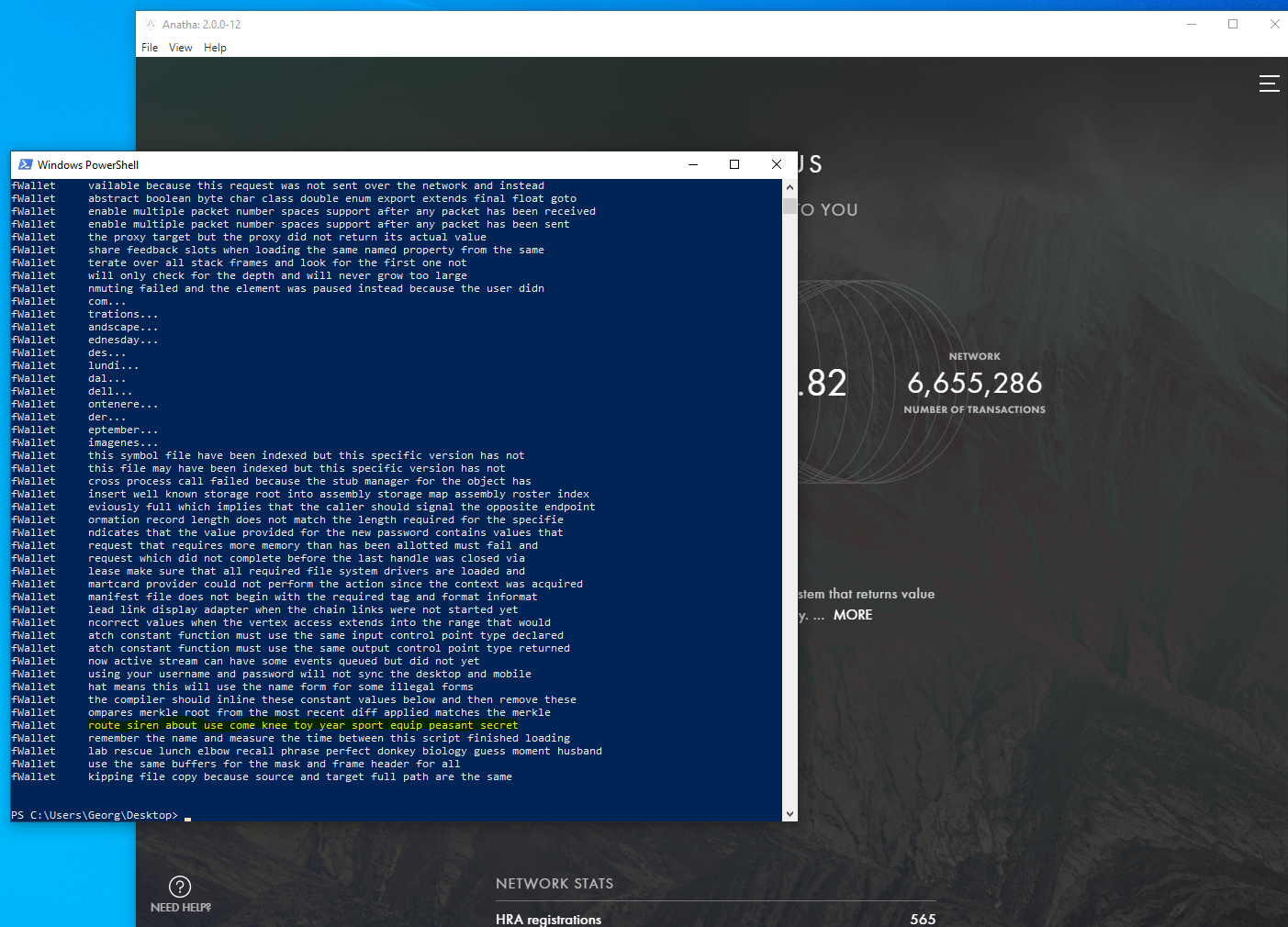
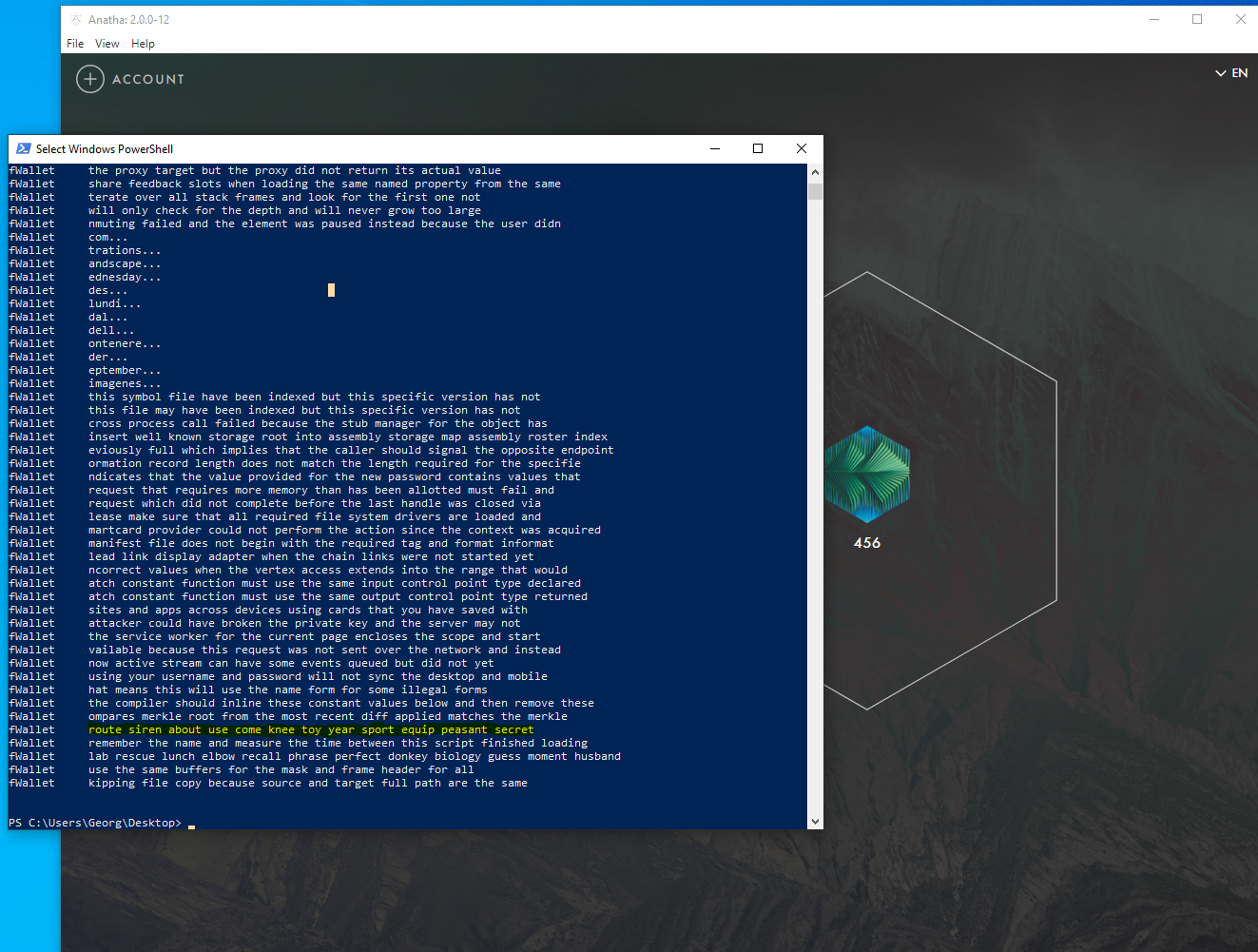
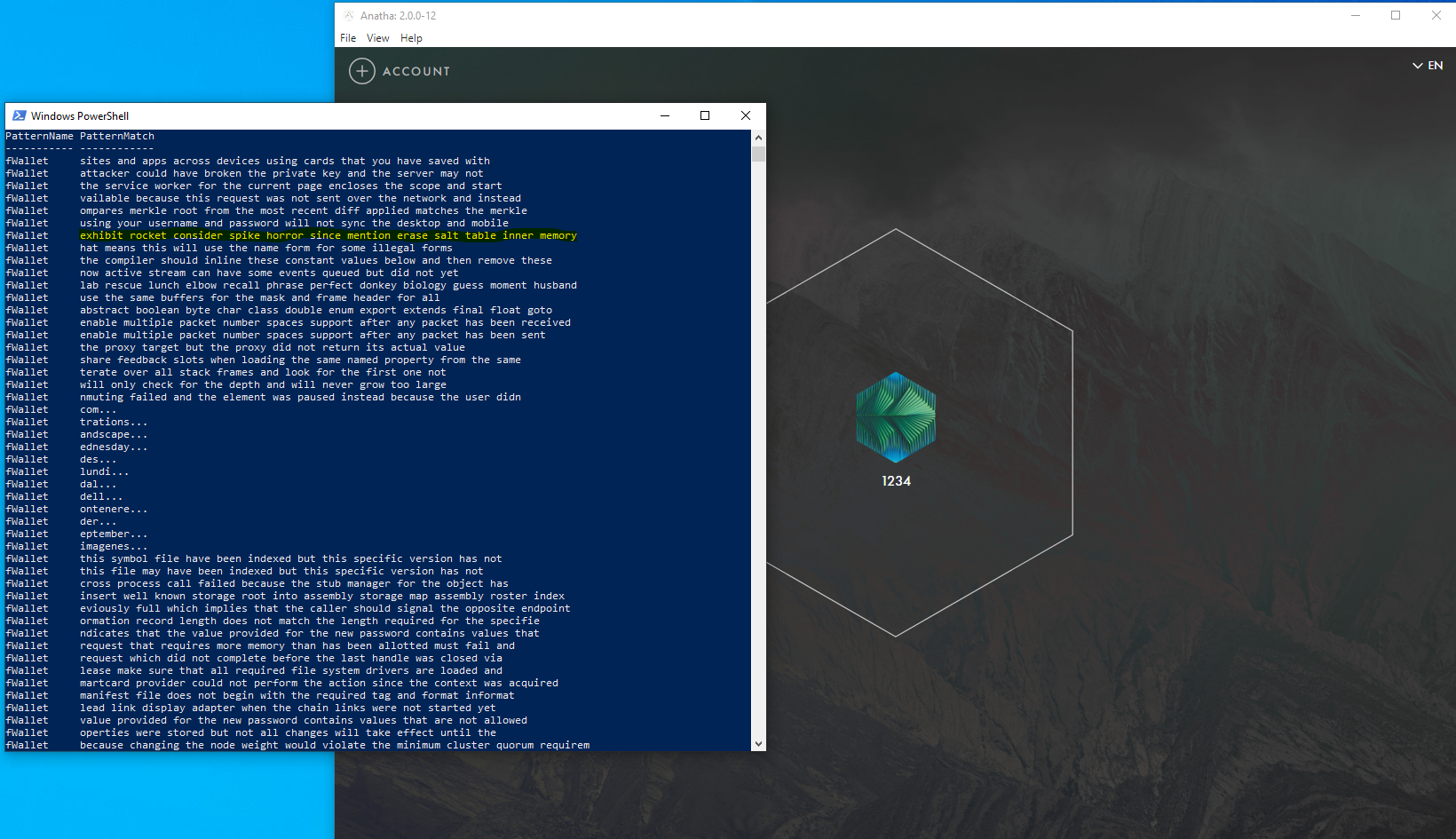
Score
Likelihood: 5
8.5 PIN MECHANISM BYPASS
//
Description
We have identified that, It is possible to bypass PIN mechanism and get the seed phrase of wallet, which can lead to takeover of user wallet. We observed that by just crossing the PIN window can bypass this mechanism and perform privilege actions like getting the seed phrase of user's wallet.
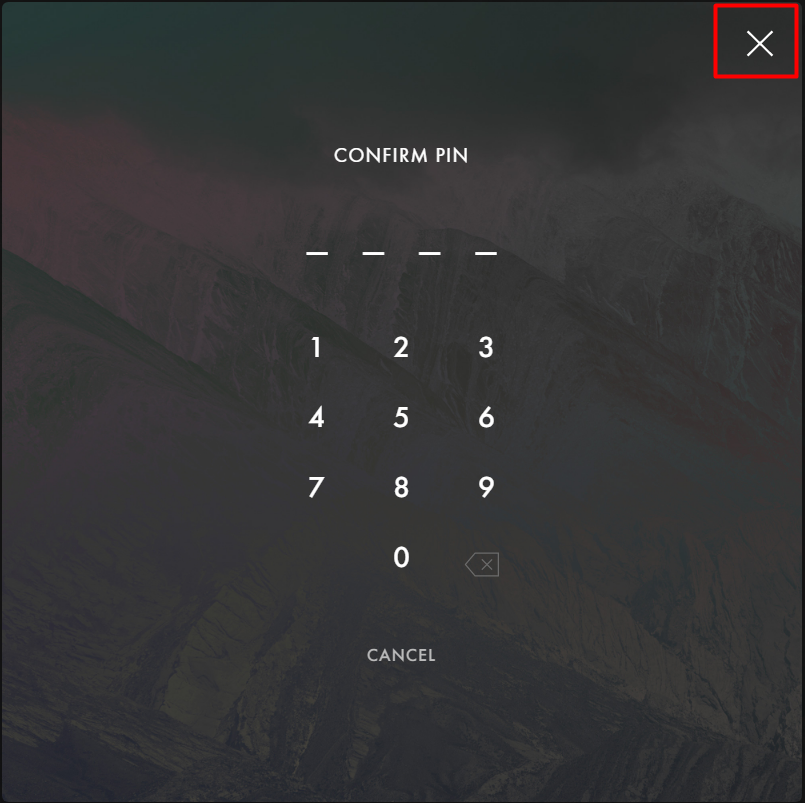 {width=400 height=500}
{width=400 height=500}Loom Video: PIN Mechanism Bypass
Score
Likelihood: 3
8.6 WORLD WRITABLE TRANSLATIONS GOOGLE DOC
//
Description
The application fetches translations for various messages in various languages from a Google Doc which is world-writable.
The Google Doc URL is in plaintext and can be retrieved from the app.asar file of the installed application.
A malicious actor can edit this document to anything they want and the next time developer runs npm run locale import all they will get the malicious changes.

Loom Video: Unauthenticated changes of the locales
Score
Likelihood: 4
8.7 CONTEXT ISOLATION DISABLED
//
Description
Context isolation is an Electron feature that allows developers to run code in preload scripts and in Electron APIs in a dedicated JavaScript context. Even when nodeIntegration: false is used, to truly enforce strong isolation and prevent the use of Node primitives contextIsolation must also be used.
If contextIsolation is not used, malicious JS code can tamper with JavaScript native functions as well as preload script code via prototype pollution.
Code Location
/wallet-desktop/app/main.dev.js
webPreferences: {
nodeIntegration: true,
nodeIntegrationInWorker: true,
enableRemoteModule: true,
contextIsolation: false,
devTools: IS_DEV_QA_MODE,
},
});
Score
Likelihood: 3
8.8 NODE INTEGRATION ENABLED
//
Description
In Electron, nodeIntegration is a boolean option that can be used to determine whether node integration is enabled, allows JavaScript to leverage Node.js primitives and modules.
As a result, this could lead to full remote system compromise if you are rendering untrusted content.
For instance, a remote untrusted domain rendered in a browser window could invoke Node.js APIs to execute native code on the user’s machine. Similarly, a Cross-Site Scripting (XSS) vulnerability on a website can lead to remote code execution.
Code Location
/wallet-desktop/app/main.dev.js
webPreferences: {
nodeIntegration: true,
nodeIntegrationInWorker: true,
enableRemoteModule: true,
contextIsolation: false,
devTools: IS_DEV_QA_MODE,
},
});
Score
Likelihood: 3
8.9 USE OF PACKAGES WITH KNOWN VULNERABILITIES
//
Description
The Anatha Desktop Wallet application uses a third-party dependency to delegate handling of program arguments. However, the dependency creates an expected disadvantage in that the actual application's security posture now rests on it.
Specifically, the axios <=0.21.1 package suffers from a high vulnerability, the elliptic<=6.5.3 package suffers from a high vulnerability, the follow-redirects<=1.14.7 suffers from a high vulnerability, the lodash<=4.17.20 package suffers from a critical vulnerability and the node-notifier<8.0.1 suffers from a medium vulnerability.
Code Location
The output of 'npm audit'
axios <=0.21.1
Severity: high
Incorrect Comparison in axios - https://github.com/advisories/GHSA-cph5-m8f7-6c5x
Server-Side Request Forgery in Axios - https://github.com/advisories/GHSA-4w2v-q235-vp99
Depends on vulnerable versions of follow-redirects
No fix available
node_modules/axios
@binance-chain/javascript-sdk *
Depends on vulnerable versions of axios
node_modules/@binance-chain/javascript-sdk
elliptic <=6.5.3
Severity: high
Use of a Broken or Risky Cryptographic Algorithm - https://github.com/advisories/GHSA-r9p9-mrjm-926w
Signature Malleabillity in elliptic - https://github.com/advisories/GHSA-vh7m-p724-62c2
fix available via `npm audit fix --force`
Will install @dashevo/dashcore-lib@0.18.15, which is a breaking change
node_modules/@dashevo/dashcore-lib/node_modules/elliptic
node_modules/bitcore-lib-cash/node_modules/elliptic
node_modules/bitcore-lib/node_modules/elliptic
node_modules/litecore-lib/node_modules/elliptic
@dashevo/dashcore-lib <=0.18.11 || >=0.19.0
Depends on vulnerable versions of elliptic
node_modules/@dashevo/dashcore-lib
follow-redirects <=1.14.7
Severity: high
Exposure of Sensitive Information to an Unauthorized Actor in follow-redirects - https://github.com/advisories/GHSA-pw2r-vq6v-hr8c
Exposure of sensitive information in follow-redirects - https://github.com/advisories/GHSA-74fj-2j2h-c42q
No fix available
node_modules/follow-redirects
axios <=0.21.1
Depends on vulnerable versions of follow-redirects
node_modules/axios
@binance-chain/javascript-sdk *
Depends on vulnerable versions of axios
node_modules/@binance-chain/javascript-sdk
lodash <=4.17.20
Severity: critical
Prototype Pollution in lodash - https://github.com/advisories/GHSA-jf85-cpcp-j695
Prototype Pollution in lodash - https://github.com/advisories/GHSA-fvqr-27wr-82fm
Prototype Pollution in lodash - https://github.com/advisories/GHSA-p6mc-m468-83gw
Command Injection in lodash - https://github.com/advisories/GHSA-35jh-r3h4-6jhm
Regular Expression Denial of Service (ReDoS) in lodash - https://github.com/advisories/GHSA-x5rq-j2xg-h7qm
fix available via `npm audit fix --force`
Will install bitcore-lib-cash@8.25.25, which is outside the stated dependency range
node_modules/bitcore-lib-cash/node_modules/lodash
node_modules/bitcore-lib/node_modules/lodash
node_modules/litecore-lib/node_modules/lodash
bitcore-lib <=8.22.1 || >=9.0.0
Depends on vulnerable versions of lodash
node_modules/bitcore-lib
bitcore-lib-cash <=8.22.1 || >=9.0.0
Depends on vulnerable versions of lodash
node_modules/bitcore-lib-cash
litecore-lib *
Depends on vulnerable versions of lodash
node_modules/litecore-lib
node-notifier <8.0.1
Severity: moderate
OS Command Injection in node-notifier - https://github.com/advisories/GHSA-5fw9-fq32-wv5p
fix available via `npm audit fix --force`
Will install jest@27.5.1, which is a breaking change
node_modules/node-notifier
@jest/reporters <=26.4.0
Depends on vulnerable versions of node-notifier
node_modules/@jest/reporters
@jest/core <=25.5.4
Depends on vulnerable versions of @jest/reporters
node_modules/@jest/core
jest-cli 24.2.0-alpha.0 - 25.5.4
Depends on vulnerable versions of @jest/core
node_modules/jest-cli
jest 24.2.0-alpha.0 - 25.5.4
Depends on vulnerable versions of jest-cli
node_modules/jest
/platform/common/package.json
"main": "dist/index.js",
"module": "dist/index.esm.js",
"types": "types/index.d.ts",
"dependencies": {
"@binance-chain/javascript-sdk": "^2.16.2",
"@cosmjs/proto-signing": "^0.24.1",
"@cosmjs/stargate": "^0.24.1",
"@dashevo/dashcore-lib": "=0.17.0",
"anatha-sdk": "git+ssh://git@github.com/anathatech/anatha-sdk.git#011659ccd94b53d288f261d49dd54841d7dff2b9",
"axios": "^0.19.2",
platform/common/package.json
"create-hash": "^1.2.0",
"elliptic": "^6.5.4",
"ethereumjs-tx": "^2.1.1",
platform/common/package-lock.json
"follow-redirects": {
"version": "1.14.9",
"resolved": "https://registry.npmjs.org/follow-redirects/-/follow-redirects-1.14.9.tgz",
"integrity": "sha512-MQDfihBQYMcyy5dhRDJUHcw7lb2Pv/TuE6xP1vyraLukNDHKbDxDNaOE3NbCAdKQApno+GPRyo1YAp89yCjK4w=="
}
platform/common/package.json
"litecore-lib": "^0.13.22",
"lodash": "^4.17.21",
"moment": "^2.27.0",
Score
Likelihood: 3
8.10 LACK OF RESOURCES AND RATE LIMITING
//
Description
API requests consume resources such as network, CPU, memory, and storage. This vulnerability occurs when too many requests arrive simultaneously and the API does not have enough compute resources to handle those requests. An attacker could exploit this vulnerability to overload the https://wallet-backend.mainnet.anatha.net/api/v1 API by sending more requests than it can handle. As a result, the API becomes unavailable or unresponsive to new requests, and there can be a depletion of third-party API tokens.
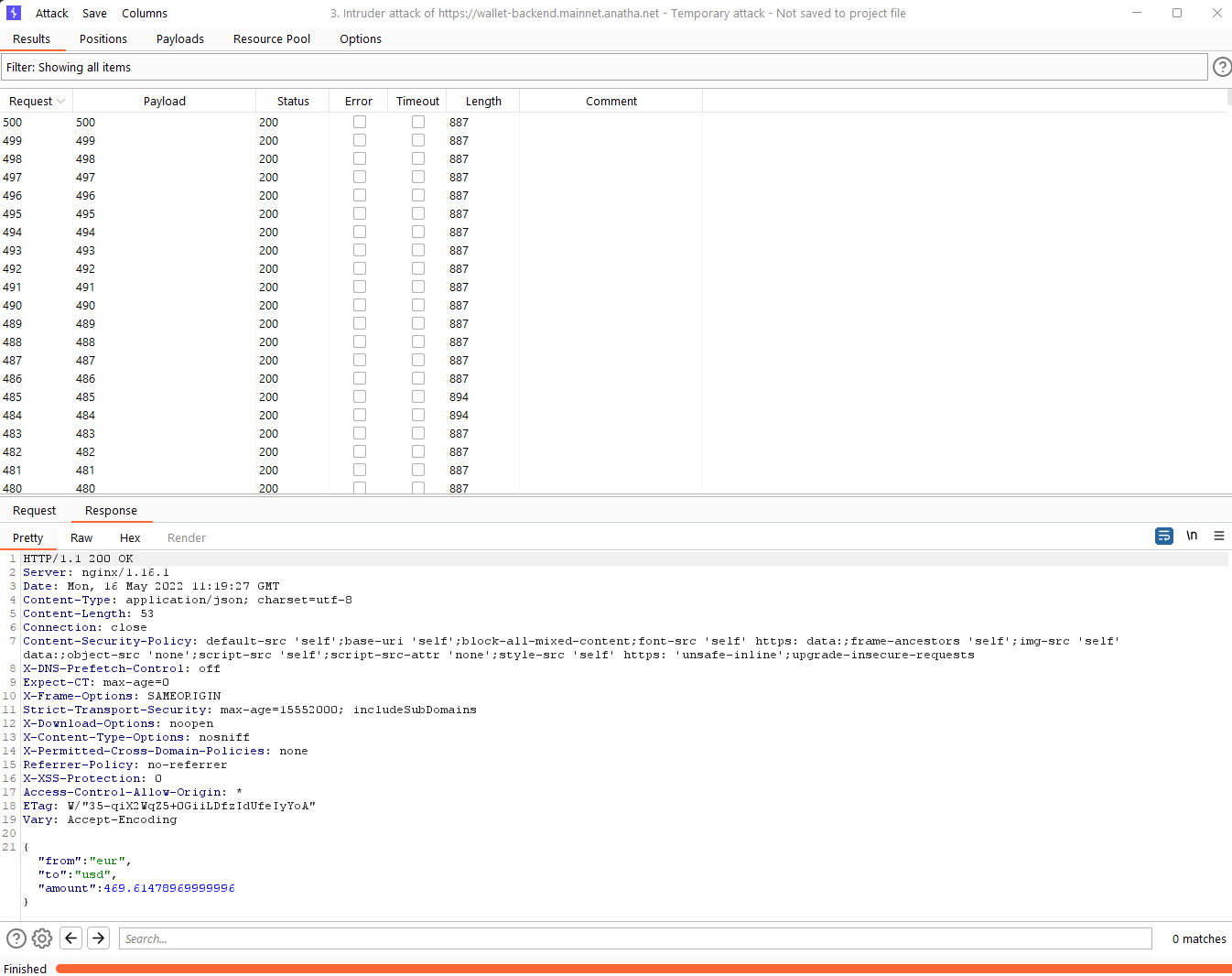
Score
Likelihood: 4
8.11 REMOTE MODULE ENABLED
//
Description
The remote module provides a way for the renderer processes to access APIs normally only available in the main process. Using it, a renderer can invoke methods of a main process object without explicitly sending inter-process messages. This is highly discouraged since the module is considered harmful.
remote uses an internal IPC channel to communicate with the main process. "Prototype pollution" attacks can grant malicious code access to the internal IPC channel, which can then be used to escape the sandbox by mimicking remote IPC messages and getting access to main process modules running with higher privileges.
Code Location
/wallet-desktop/app/main.dev.js
webPreferences: {
nodeIntegration: true,
nodeIntegrationInWorker: true,
enableRemoteModule: true,
contextIsolation: false,
devTools: IS_DEV_QA_MODE,
},
});
Score
Likelihood: 3
8.12 APPLICATION ERROR LEAKS INFORMATION ABOUT TECHNOLOGY USED
//
Description
We have discovered that the backend API server with which the Anatha Desktop Wallet communicates, generates an error message that includes sensitive information about its environment, users, or associated data.
Specifically, the error shows directory structure, OS, and JS packages used.

This is the HTTP Request/Response that produces the error:
POST /api/v1/auth HTTP/1.1
Accept: application/json, text/plain, */*
Content-Type: application/json;charset=utf-8
User-Agent: axios/0.19.2
Content-Length: 486
Host: wallet-backend.mainnet.anatha.net
Connection: close
{"data":{"challenge":"12345'"\'\");|]*%00{%0d%0a<%00>%bf%27'####"},"public_key":"022459a933b8b88bdb8029a9e5c7730a7d41c2ac4507e2be7889f2ba88ddc520a3","signature":"7..."}
HTTP/1.1 400 Bad Request
Server: nginx/1.16.1
Date: Wed, 25 May 2022 07:18:13 GMT
Content-Type: text/html; charset=utf-8
Content-Length: 1016
Connection: close
Content-Security-Policy: default-src 'none'
X-DNS-Prefetch-Control: off
Expect-CT: max-age=0
X-Frame-Options: SAMEORIGIN
Strict-Transport-Security: max-age=15552000; includeSubDomains
X-Download-Options: noopen
X-Content-Type-Options: nosniff
X-Permitted-Cross-Domain-Policies: none
Referrer-Policy: no-referrer
X-XSS-Protection: 0
<!DOCTYPE html>
<html lang="en">
<head>
<meta charset="utf-8">
<title>Error</title>
</head>
<body>
<pre>SyntaxError: Unexpected token \ in JSON at position 29<br> at JSON.parse (<anonymous>)<br> at parse (/home/centos/wallet-backend/node_modules/body-parser/lib/types/json.js:89:19)<br> at /home/centos/wallet-backend/node_modules/body-parser/lib/read.js:121:18<br> at invokeCallback (/home/centos/wallet-backend/node_modules/raw-body/index.js:224:16)<br> at done (/home/centos/wallet-backend/node_modules/raw-body/index.js:213:7)<br> at IncomingMessage.onEnd (/home/centos/wallet-backend/node_modules/raw-body/index.js:273:7)<br> at IncomingMessage.emit (events.js:314:20)<br> at IncomingMessage.EventEmitter.emit (domain.js:483:12)<br> at endReadableNT (_stream_readable.js:1241:12)<br> at processTicksAndRejections (internal/process/task_queues.js:84:21)</pre>
</body>
</html>
Score
Likelihood: 3
8.13 SEED PHRASE NOT VALIDATED AFTER WALLET CREATION
//
Description
When creating an account on the Anatha Desktop Wallet, the application doesn't ask the user to validate that they have written down the correct seed phrase. This can lead to loss of funds if, for any reason, the user has written down the wrong Seed Phrase. We have also identified that, It was possible to create a Wallet account with any random alphabets. Moreover, there were no checks on the length of the seed phrase as well.


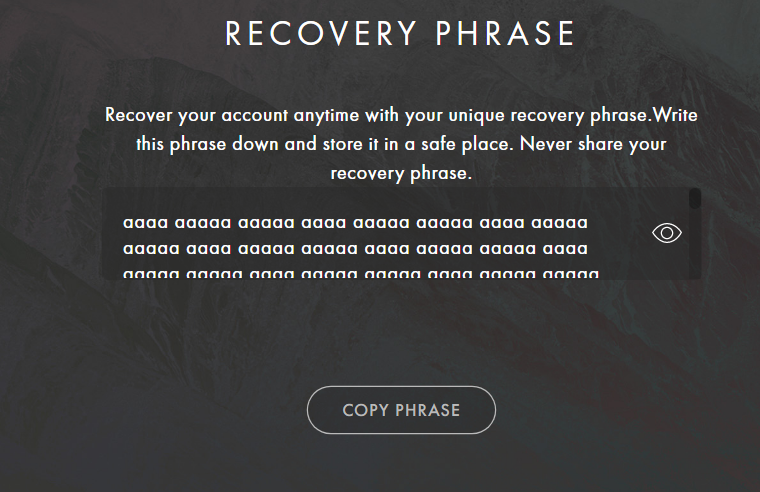
Score
Likelihood: 2
Halborn strongly recommends conducting a follow-up assessment of the project either within six months or immediately following any material changes to the codebase, whichever comes first. This approach is crucial for maintaining the project’s integrity and addressing potential vulnerabilities introduced by code modifications.
Table of Contents
- 1. Introduction
- 2. Audit summary
- 3. Test approach & methodology
- 4. Scope
- 5. Risk methodology
- 6. Scope
- 7. Assessment summary & findings overview
- 8. Findings & Tech Details
- 8.1 Leaked repo, write:packages github token
- 8.2 Hardcoded mnemonic phrases stored on disk
- 8.3 Hardcoded private keys stored on disk
- 8.4 Unencrypted mnemonic phrase in-memory (demonic)
- 8.5 Pin mechanism bypass
- 8.6 World writable translations google doc
- 8.7 Context isolation disabled
- 8.8 Node integration enabled
- 8.9 Use of packages with known vulnerabilities
- 8.10 Lack of resources and rate limiting
- 8.11 Remote module enabled
- 8.12 Application error leaks information about technology used
- 8.13 Seed phrase not validated after wallet creation
// Download the full report
* Use Google Chrome for best results
** Check "Background Graphics" in the print settings if needed
